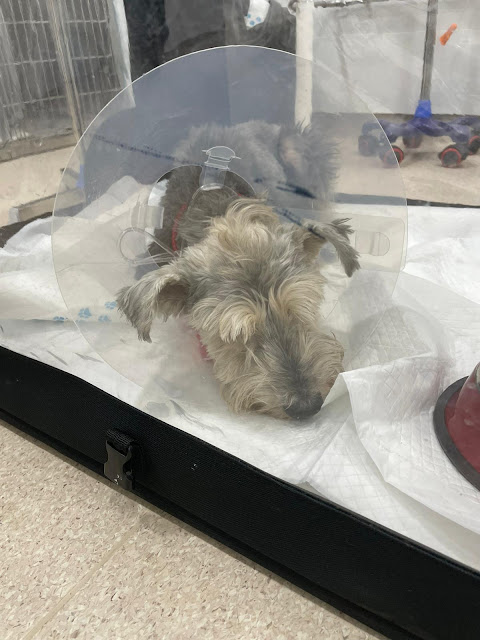Pancreatitis in dogs is an insidious condition. It is a potentially life-threatening condition, yet the symptoms may not be very obvious at first and even if they are, are common enough that they are usually dismissed or mistaken for something less serious. We had a brush with this disease when Timmy got it. His pancreatitis had led to acute kidney failure and we almost lost him. So we felt that it is important for all pet parents to be aware of what to look out for.
The pancreas is responsible for producing digestive enzymes to aid in digestion. Normally, these enzymes are not activated until they reach the intestines where their work begins. In some cases, the enzymes are activated before they reach their destination and this can result in the enzymes digesting the pancreas itself and the surrounding tissues and organs, causing damage and inflammation to these areas. The inflammation of the pancreas is what we refer to as pancreatitis. This can cause extreme pain to the dog so one of the signs of this is that a dog may adopt a prayer position when resting. The prayer position is where the front elbows are on the ground but the back legs are standing. This is never a good position to find your dog in because this shows that the dog has pain in the abdomen area which is why they are not resting on it. If you ever find your dog in such a position, you should take them to the vet immediately.
Some other signs of pancreatitis are repeated vomiting, diarrhoea, weakness and/or lethargy, loss of appetite, dehydration and fever. Again, these are not specific to pancreatitis and can be signs of other conditions which may be just as serious. As a general rule of thumb, if your dog only exhibits one of these signs, and only infrequently, then you can just monitor them. If multiple signs present at the same time and repeatedly, then you should take your dog to the vet immediately.
Exactly what causes pancreatitis is not known and an attack often happens out of the blue,but there are risk factors that are known to trigger the condition:
- A high-fat diet is a major cause of pancreatitis, especially when a dog has a large helping of fatty food in one serving.
- Dogs who are obese, have diabetes or endocrine disorders may also be more susceptible to the condition.
- Certain medications such as corticosteroids may also trigger the condition.
- Some small breed dogs like miniature schnauzers and other terrier breeds are simply more predisposed to developing pancreatitis.
Pancreatitis can be life-threatening and should never be treated with any home remedy. Types of supplements should always be discussed with your vet before giving them to your dog as some supplements may worsen the condition. For example, fish oil, though counterintuitive, has also been shown to lower lipid levels which can help. However, human studies have shown that probiotics actually worsens the condition.
Prevention is always the best medicine, and just as in most cases, it is important to make sure that you feed your dog a healthy, balanced (for canines, not humans) diet that is low in fat. However, sometimes you may do all the right things and yet fate has just dealt the dog a bad hand so it is critical to stay vigilant and be aware of the warning signs that your dog may be in distress. If ever in doubt, always err on the side of caution and take your dog to the vet. Better to be kiasu than not!



